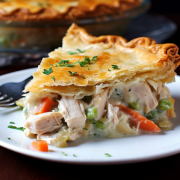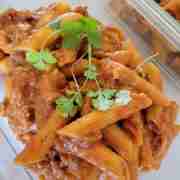It’s a task we perform almost every day – boiling water. But have we ever really stopped to think about the process and how to do it most effectively? From knowing when the water has truly reached boiling point, to understanding the factors that affect how long it takes to boil, there’s more to this simple task than meets the eye. Understanding these can not only enhance our cooking skills but can also help us manage our time and energy use more effectively.
Contents
The Science of Boiling Water
At its core, boiling is a phase transition from a liquid state (water) to a gaseous state (steam). This occurs when the water reaches a specific temperature known as the boiling point – 100 degrees Celsius (212 degrees Fahrenheit) at sea level.
How to Identify Boiling Water
One common way to tell if water is boiling is by looking for large, rapidly forming bubbles. These bubbles are formed by water vapor, which is produced when the water reaches its boiling point. When you see a constant stream of these bubbles rising to the surface, your water is truly boiling.
Factors Influencing Boiling Time
The time it takes for water to boil isn’t always the same. It can vary depending on several factors:
1. Starting Temperature of Water
Water that starts at room temperature will take longer to boil than water that is already warm.
2. Volume of Water
The more water you’re boiling, the longer it will take to reach boiling point.
3. Heat Source
The strength of your heat source (like a stove or electric kettle) impacts how quickly water boils. A stronger heat source will boil water faster.
4. Altitude
At higher altitudes, the boiling point of water is lower, so water will boil at a lower temperature and more quickly than at sea level.

General Guideline For Water Boiling Times
Generally, for a typical stovetop kettle filled with cold tap water, it might take approximately 10-15 minutes to reach a boil. For an electric kettle, it’s usually faster, and might take around 4-5 minutes. If you’re heating a small amount of water in a pot on the stove, it might take about 7-10 minutes. But remember, these are general estimates and can vary based on the factors mentioned above.
Here’s a rough approximation based on typical residential kitchen equipment:
| Starting Condition of Water | Heat Setting | Pot Condition | Estimated Boiling Time |
|---|---|---|---|
| Cold from tap (about 7°C/45°F) | Low | Lid off | 25-30 minutes |
| Cold from tap (about 7°C/45°F) | High | Lid off | 10-15 minutes |
| Room temperature (about 20°C/68°F) | Low | Lid off | 20-25 minutes |
| Room temperature (about 20°C/68°F) | High | Lid off | 7-10 minutes |
| Hot from tap (about 49°C/120°F) | Low | Lid off | 10-15 minutes |
| Hot from tap (about 49°C/120°F) | High | Lid off | 4-6 minutes |
| Cold from tap (about 7°C/45°F) | Medium | Lid on | 5-8 minutes |
| Room temperature (about 20°C/68°F) | Medium | Lid on | 4-6 minutes |
| Hot from tap (about 49°C/120°F) | Medium | Lid on | 2-4 minutes |
Remember, these are rough estimates and actual times can vary based on a variety of factors, including the specifics of your kitchen equipment and the precise volume of water you’re boiling. To use this information most effectively, consider conducting your own tests to determine how long it typically takes to boil water under different conditions in your kitchen. This can help you plan your cooking activities more effectively.





